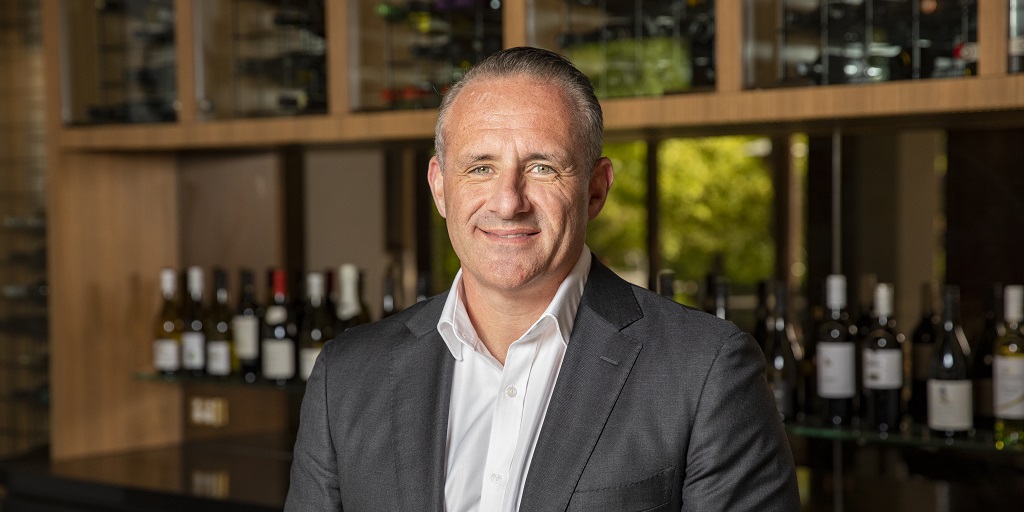
Sales stagnate but profits up at Endeavour Group

Steve Donohue, CEO Endeavour Group.
Sales growth has steadied across Endeavour Group, declining slightly in its retail arm after a challenging year, its first as an independently listed business.
Endeavour (ASX:EDV) is the largest alcohol retail network in Australia with 1,675 stores BWS and Dan Murphy’s across the country. It also owns the ALH Group of 344 hotels.
Across the group, revenue grew slightly to $11.6 billion. Profit for the year after tax increased 11.2 per cent to $495 million, it told the ASX yesterday.
However, sales in the retail division declined 0.9 per cent to $10.09 billion.
Retail EBIT declined 0.4 per cent in the year to $666 million, compared to the 20.7 per cent increase in hotels EBIT, which reached $315 million.
On an investor call yesterday, group CEO Steve Donohue acknowledged that it had been a “tough year” but praised the “natural hedge” between the retail and hotel segments.
This was despite the fact that its full portfolio of hotels was only open for 30 per cent of the days in the first half. After an initial slow start due to the Omicron outbreak, customers “enthusiastically” returned to its hotels.
Donohue highlighted the ongoing staff shortages, supply chain issues and rising inflation as challenging areas, but admitted that the group was a “net beneficiary of restrictions and lockdowns in the year”.
The Endeavour team also attempted to manage investor expectations after two years of exceptionally strong growth.
“What we are seeing is retail sales moderating from FY20 [the most recent pre-COVID comparative] to 2022 COVID elevated level, and customers returning to a more normal pattern of in-store purchasing along with a shift back to local convenience,” said Donohoe on the investor call.
“That means that we’re seeing some short-term moderation in our online penetration. And our BWS stores are slightly outperforming Dan Murphy’s at the moment and cycling through the past COVID demand spikes where Dan’s actually got the bigger lift.”
This mirrors findings from IRI Australia which suggested that there was a six percentage point decrease in people buying online in the last year.
On the investor call, representatives from some of Endeavour’s major investors such as JP Morgan and Bank of America raised issues regarding profit margin performance.
“We were probably impacted by supply chain costs a little bit later than perhaps some others in the market… it was relatively acute for us in H2 relative to H1,” explained Donohue.
He argued that they had an “abnormally high result in H1” in contrast to the second half.
Second half financial performance did however benefit from disciplined cost management and solid contributions from gaming, beverage, food and accommodation,” Donohue said.
Growth drivers and market segments
Pinnacle Drinks, which develops and manages Endeavour’s portfolio of private label brands like Zytho Brewing, has long been a driver of growth for the business.
In its full year, Pinnacle Drinks launched 479 new private label products and focused on premiumisation, which the CEO suggested resonated with customers.
“Customers love Pinnacle products,” Donohue said, “with over 70 per cent of our customers having purchased something from the Pinnacle portfolio in F22.”
Gross profit margin improvement was underpinned by this move to premiumisation across the board – which saw craft brands also remain strong – as well as higher margin new products and lower levels of promotional activity in the market.
Growth in spirits and premix was a highlight, with seltzers performing particularly well. Sales in these categories have grown more than 40 per cent in the past three years, Endeavour said.
Donohoe also highlighted the acceleration of low and zero alcohol with five of the 10 fastest growing subcategories being in low and zero alcohol – although he did iterate that it was from a low base.
Driving online sales will be a key area of growth and diversification of revenue streams going forward Donohue said.
In the full year, online sales grew 17 per cent and exceeded $1 billion for the first time and were increasingly profitable, driven by scaling operating efficiencies and premiumisation for online shoppers.
But overall, according to chief financial officer Shane Gannon, Endeavour’s balance sheet positions the business for long term stability, “and equally provides financial capacity to support our development and growth opportunities, both short and long term”.
However, Donohue warned that there were challenges ahead.
“We expect inflation will remain elevated, putting upward pressure on wages, cost of goods and supply chain costs, and potentially dampening customers’ spending on discretionary items,” he said.
“We will manage these impacts through measured cost recovery, disciplined cost management and operational optimisation.”



